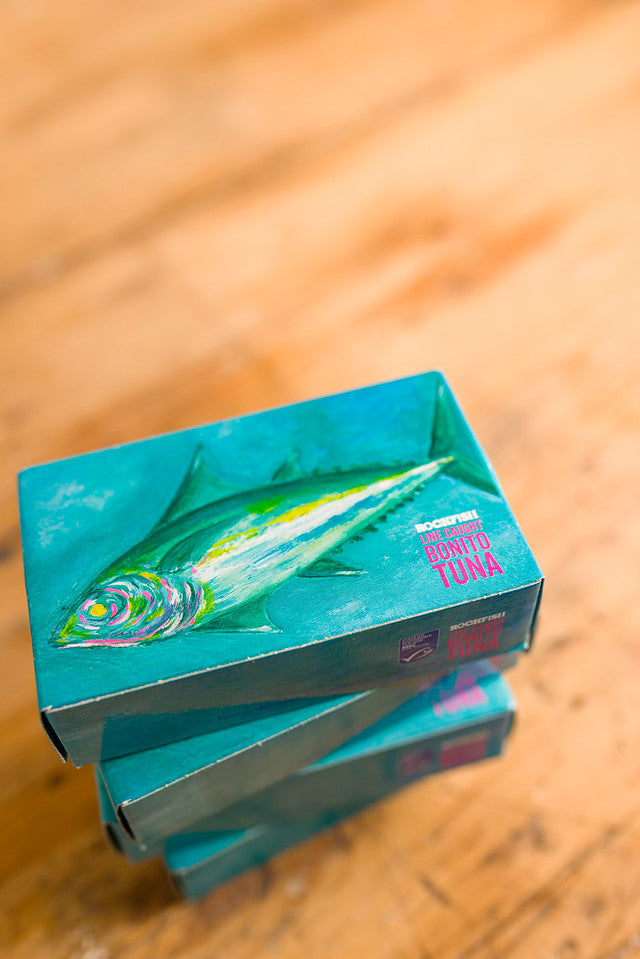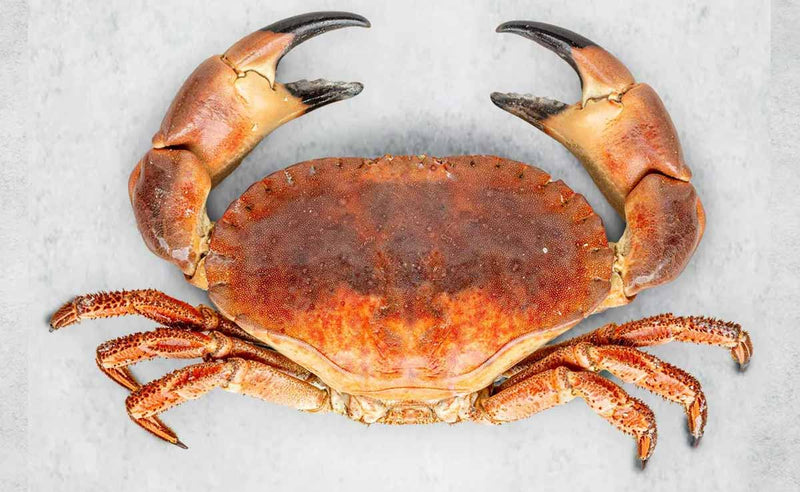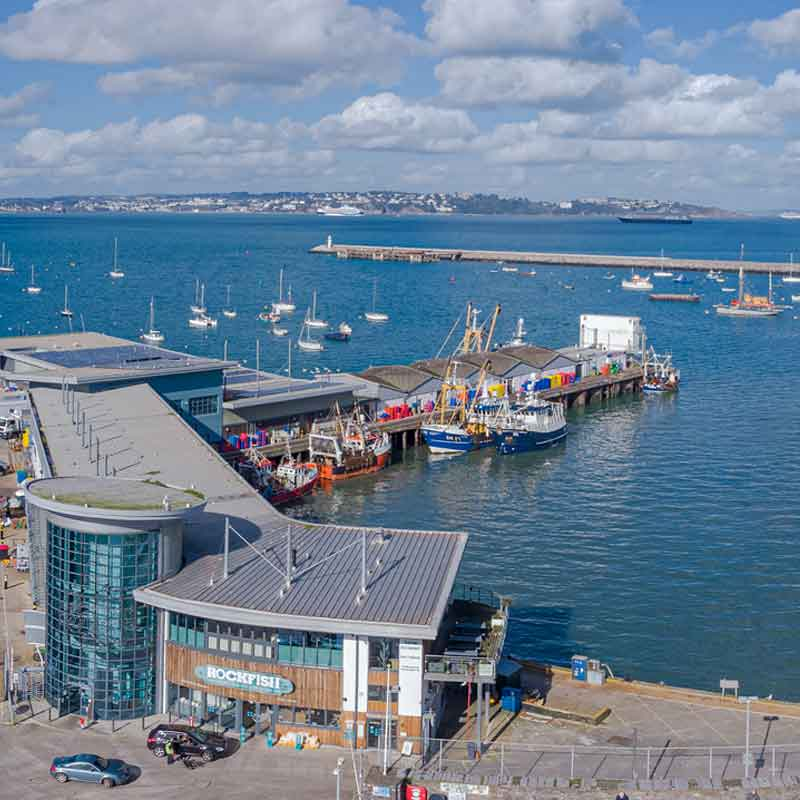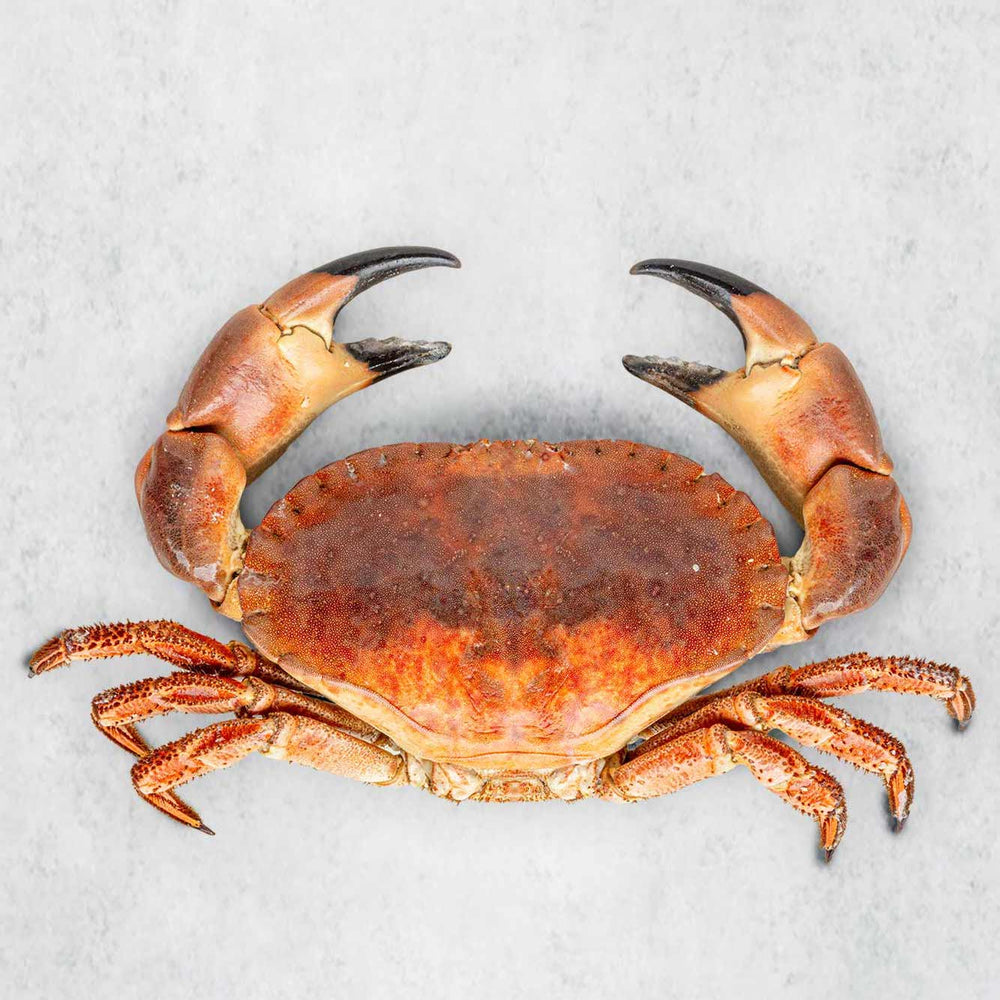TOO GOOD TO TIN? The prize fish in our cans.
Quick read (less than five minutes)
For three balmy weeks in July the coast of Northern Spain becomes a festival of action.
While tourists might flock to the region for its temperate climes, so too does one of the most prized fish on the face of the planet: Bonito del Norte, or as it’s commercially known: white tuna.
Tuna is a confusing fish. We sometimes hear of it selling for squillions on the world-famous fish markets of Tokyo. And yet, many of us know it as something we might dollop on top a jacket potato, with sweet corn and lashings of mayo.
Tuna and tuna – what’s the difference?
Put simply, different tuna attract different attention. Blue fin – a fish that is miraculously returning to our waters here in Devon – is considered the world’s most expensive fish. It accounts for less than 1% of global tuna consumption and is only available in the most sought-after sushi restaurants.
Meanwhile, that greyish-pink stuff you find in your meal-deal sandwich, that’s Skipjack. The smallest of all the tuna, and the most abundant, accounting for 58% of all tuna caught.
Somewhere in the middle is yellow fin. A tasty fish, that’s good raw and abundant in the warm waters of the Indian and Pacific oceans. If you’ve eaten in a chain sushi restaurant, or bought tuna steaks from your supermarket fish counter, yellow fin is most likely what you’ll have been given.
Bonito del Norte canned fresh
Bonito del Norte is the fourth of the tuna species. So prized is Bonito del Norte by Spanish and Portuguese fisherman, that their sheer mention will turn even the most sea hardened hearts as mushy as a Brixham crabber's pot bait. And it’s what we use in our tins!
The artisan canneries that populate the coastal towns of Spain and Portugal producing conservas that are celebrated the world over, have their own perfected recipe for preserving this glorious fish, cooking it in open cauldrons to yield a creamy-soft texture and rich buttery flavour that is enhanced by the fish’s rich anchovy diet. What makes our tins extra special is that we tin from fresh, when the fish is in season, at their prime.
Bonitos are often adoringly called ‘the chicken of the sea’. Their tender white flesh stirs fond memories of the plump, moist breast meat you’d find on Granny’s Sunday roast chicken.
It’s the fish that inspired an abundant and diverse range of glorious Mediterranean dishes like salad niçoise, we love it topped onto a flatbread with chilli and red onion for a simple, life-affirming, crowd-pleaser picnic dish.
With summer tempting us with longer evenings, and the occasional ray of warmth, we thought we’d try to transport you to the glorious Cantabrian sunshine.
Looking for inspiration?
Our friend Sian Hughes (@recipiebreakout) has created a zingy homemade Tuscan-style salad with anchovy mayo and our Bonito tuna. It’s a must try!



